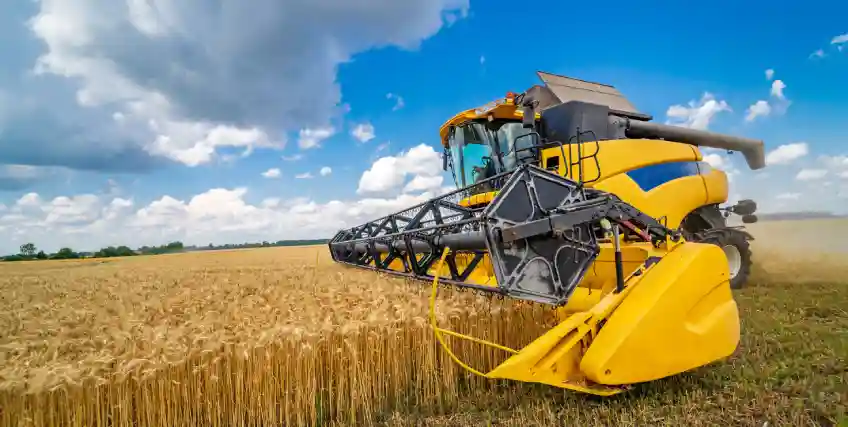What Are Machinery Loans and How Do They Work
Sep 16, 2025 | Last Updated on: Sep 17, 2025

Machinery loans have become a vital financing tool for businesses of all sizes looking to acquire or upgrade equipment. Whether in agriculture, construction, manufacturing, or any sector reliant on specialized hardware, access to the right machinery can significantly boost efficiency, productivity, and business growth.
This comprehensive guide explores everything you need to know about machinery loans, how they function, their various types, eligibility criteria, benefits, potential drawbacks, and strategies for successful application and management.
Understanding Machinery Loans
Machinery loans help businesses buy, lease, or refinance equipment. Unlike the general-purpose business loan, machinery loans are specifically designed for physical assets, including manufacturing equipment, construction equipment, farm implements, and even office machines.
Types of Machinery Finance Solutions
Below mentioned are some of the machinery financing solution:
Equipment loans
Equipment loans provide lenders to borrowers with cash to purchase equipment outright. The firm maintains title to the asset if paid back in full, and the equipment itself typically serves as collateral for the duration of the loan payments. Interest charges can be fixed or variable, and terms usually range from one to ten years, depending on lender and equipment type.
Equipment leasing
Leasing allows a business to use a piece of equipment for a certain period of time, normally at reduced monthly installments compared to purchase loans. Leased equipment may be bought by businesses at the conclusion of a lease, replaced with new versions, or merely returned. Leasing is perfect for businesses that desire operating flexibility or enjoy constant technology refresh.
Vendor and dealer financing
Other manufacturers or dealers offer the machinery finance packages directly to the buyers, typically with preferential rates or lenient terms designed to fit the unique requirements of the buyer. This becomes easy to purchase and occasionally includes maintenance packages or insurance.
SBA and government-backed loans
Government-guaranteed loans, such as the SBA 504 and 7(a) in the United States, typically subsidize business loans to finance machinery purchases. They typically have longer repayment cycles, low down payments, and favorable interest rates, but come with additional paperwork and approval procedures.
How Machinery Loans Work
Application
The application usually starts with selecting the desired equipment and gathering relevant business and financial data. The lenders will look at the applicant's creditworthiness, business cash flow, years in business, equipment cost, and, in certain instances, the projected impact on operations.
Some lenders can approve smaller loans with minimal paperwork and approval within days, but larger amounts and government programs require additional due diligence.
Approval and disbursement
On approval, the funds are either paid directly to the seller or reimbursed to the buyer at the time of purchase. The equipment usually serves as collateral for the loan duration, and thus, these loans are fairly secure for lenders.
Repayment
Repayment terms may be monthly, quarterly, semi-annual, or seasonal, especially for farm equipment financing, where cash flow may be a function of harvest seasons. Terms typically range from three to ten years, sometimes longer, for extremely high-value heavy equipment.
End of term
In the scenario of loans, ownership vests outright at the end of the term. In the event of leases and hire purchase agreements, a balloon payment or buyout can be stipulated. Early repayment options can be made available, subject to penalties or incentives for earlier settlement of the loan.
Where Are Machinery Loans Used?
Manufacturing and production
Companies commonly use machinery loans to finance CNC machinery, robots, fabrication machinery, and conveyor belts. Advanced machinery fosters competitive productivity and product quality.
Construction and heavy industry
Heavy equipment leasing helps construction companies acquire excavators, loaders, cranes, and paving machines required for big construction work. Availability of newer equipment can be the difference between winning or losing bids and expanding their capacities for existing businesses and start-ups alike.
Agriculture
Agricultural equipment financing offers the cost of tractors, harvesters, planters, irrigation machines, and ancillary equipment. Agricultural equipment is crucial to modern-day agricultural business, driving efficiency and output in a very capital-intensive venture. Flexible financing aligned with seasonal income patterns is prevalent in the sector.
Benefits of Machinery Loans
Below mentioned are the benefits of machinery loans:
Expanded access to capital
Equipment financing enables businesses to purchase required assets without making massive upfront investments, thus leaving working capital untouched for operating expenses, marketing, or hiring expansions. This kind of access is critical for growth-stage businesses.
Operational efficiency
New machines are quicker, more accurate, and more reliable than older models, so financing enables businesses to upgrade and stay competitive, which increases efficiency and reduces maintenance costs.
Flexibility
Lenders offer tailored repayment plans, allowing companies to align payments with revenue streams, particularly valuable in cyclical industries like construction or farming.
Possible Tax advantages
Business loan interest for equipment purchases is typically tax-deductible. In some places, companies can also depreciate or fully expense new equipment the year they purchase it, further increasing savings. However, it is advised to consult a tax professional.
Credit building
On-time payments can strengthen business credit profiles, and it is simple to qualify for greater or different types of financing down the road.
Drawbacks and Risks
Below mentioned are the drawbacks of machinery loans:
Asset as collateral
As machinery loans frequently take the bought asset as collateral, companies stand to lose vital equipment in case of default on repayment.
Total cost
Interest charges, origination fees, and other related costs imply that the overall cost will typically be more than the cash cost of the equipment. Lenders and terms must be compared to prevent overpayment.
Depreciation
Equipment, especially advanced equipment, depreciates rapidly. Budgeting has to be approached with care to avoid a company owing money on obsolete or inoperable equipment.
Maintenance and upgrades
Maintenance, upgrading, and repairs typically are not within most loan coverage. When equipment fails or is no longer current, companies may need to sign new financing arrangements.
Eligibility Criteria for Machinery Loans
While requirements vary by lender, some common eligibility factors include:
- Business credit score (minimum credit score will vary based on financer’s requirements)
- Time in business (from a few months for small loans to 2+ years for large loans)
- Annual revenue requirements
- Down payment capability
- Clear title or ownership of assets
Lenders may also require business plans, equipment quotes, tax returns, or explanations of how the equipment will benefit the business.
Strategies to Secure the Best Machinery Finance
Follow these strategies to secure the best machinery loans:
Shop around for terms
Compare a few lenders for rates of interest, terms of the loan, down payments, and customer service reputation. There are lenders that lend on heavy equipment, lenders that lend on farm equipment, and their terms might be different.
Consider new vs. used equipment financing
New and used equipment is frequently financed, but used equipment may be financed at a higher interest rate or shorter term. Account for the estimated life of the asset.
Assess the total cost of ownership
Factor in purchase cost, interest, charges, maintenance, insurance, and resale value, if any, into your calculation, rather than the monthly installment.
Prepare strong documentation
A persuasive business case or development forecast demonstrating how the new equipment will save money or make money can enhance approval chances and secure improved terms.
Time your application
Applying during promotional periods or through partner-dealer lenders might result in lower rates or payment deferrals.
Conclusion
Machinery loans are indispensable for modern business growth. They offer a path to essential equipment, facilitating expansion and enhanced productivity while spreading costs over time.
By understanding the types of machinery finance available, including agricultural machinery finance, heavy machinery financing, and securing a business loan for machinery purchase, businesses can make strategic investments, optimize cash flow, and stay competitive.
Always compare offers, understand total costs, and align financing terms with operational goals. The right machinery loan not only meets today’s needs but also fuels tomorrow’s ambitions.
FAQs About Machinery Loans
What credit score is needed for an equipment loan?
Each lender is different as there are several factors, including credit score, that will impact your eligibility.
Is an equipment loan hard to get?
Machinery loans aren't usually hard to obtain. Many lenders offer flexible terms and accept moderate credit scores, especially if you can make a solid down payment, even as a startup small business.
Who is eligible for an equipment loan?
Eligibility often requires a personal credit score of 600+ or a business credit score of 75+. While some lenders are more flexible, improving your credit can increase your chances of approval and help secure better loan terms and monthly payments.
How many years can you finance equipment?
Loan terms vary widely. Machinery financing options may span from a few months to several years. Equipment leases often offer flexible terms lasting three, seven, or even 10 years, depending on the loan amount and asset type.
How much must my credit score be to get a loan?
Credit requirements differ by lender, but scores between 600–700 are typically preferred. A higher score improves your chances of qualifying and securing lower monthly payments and better financing options for your small business.
Frequent searches leading to this page
Term Loans are made by Itria Ventures LLC or Cross River Bank, Member FDIC. This is not a deposit product. California residents: Itria Ventures LLC is licensed by the Department of Financial Protection and Innovation. Loans are made or arranged pursuant to California Financing Law License # 60DBO-35839




